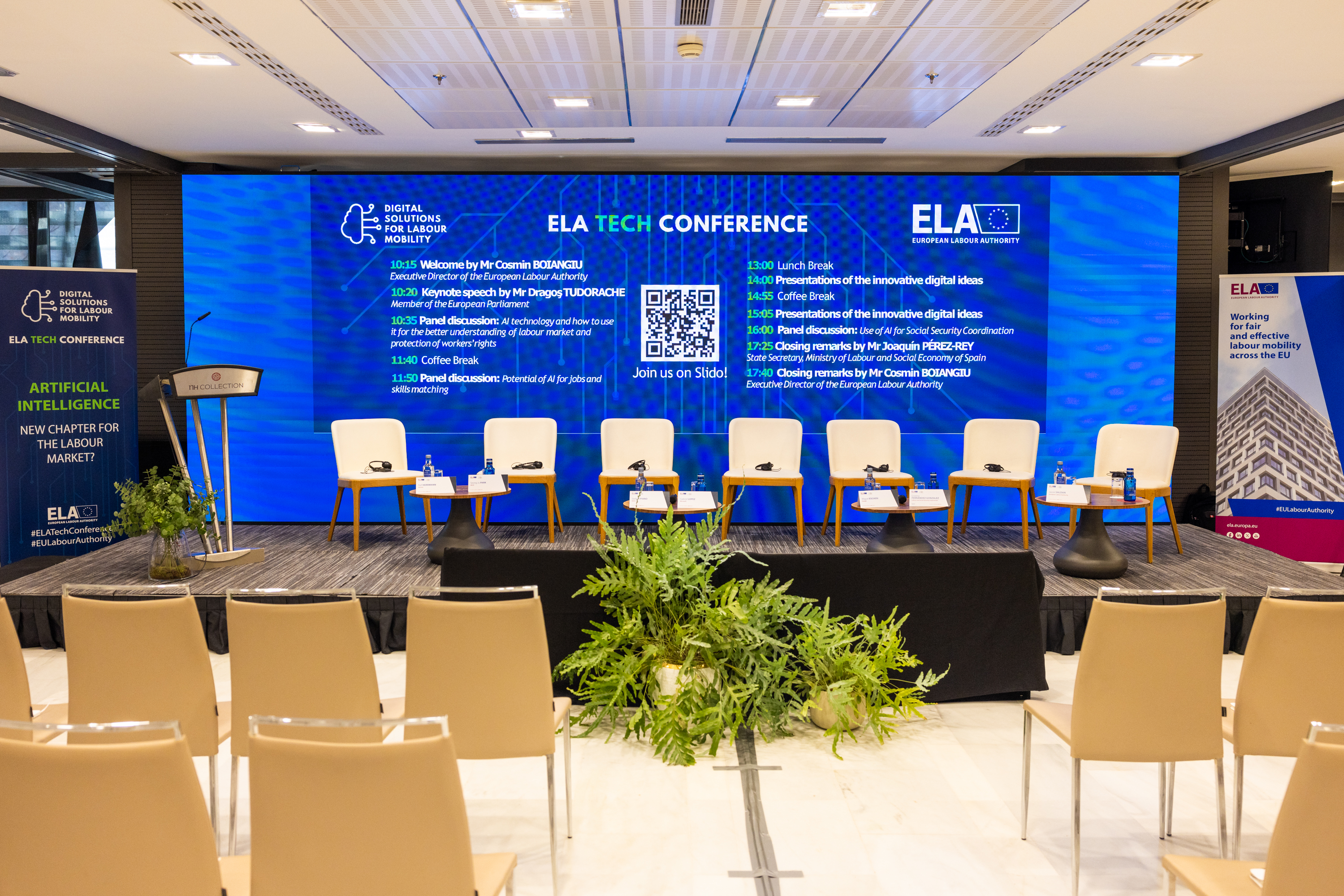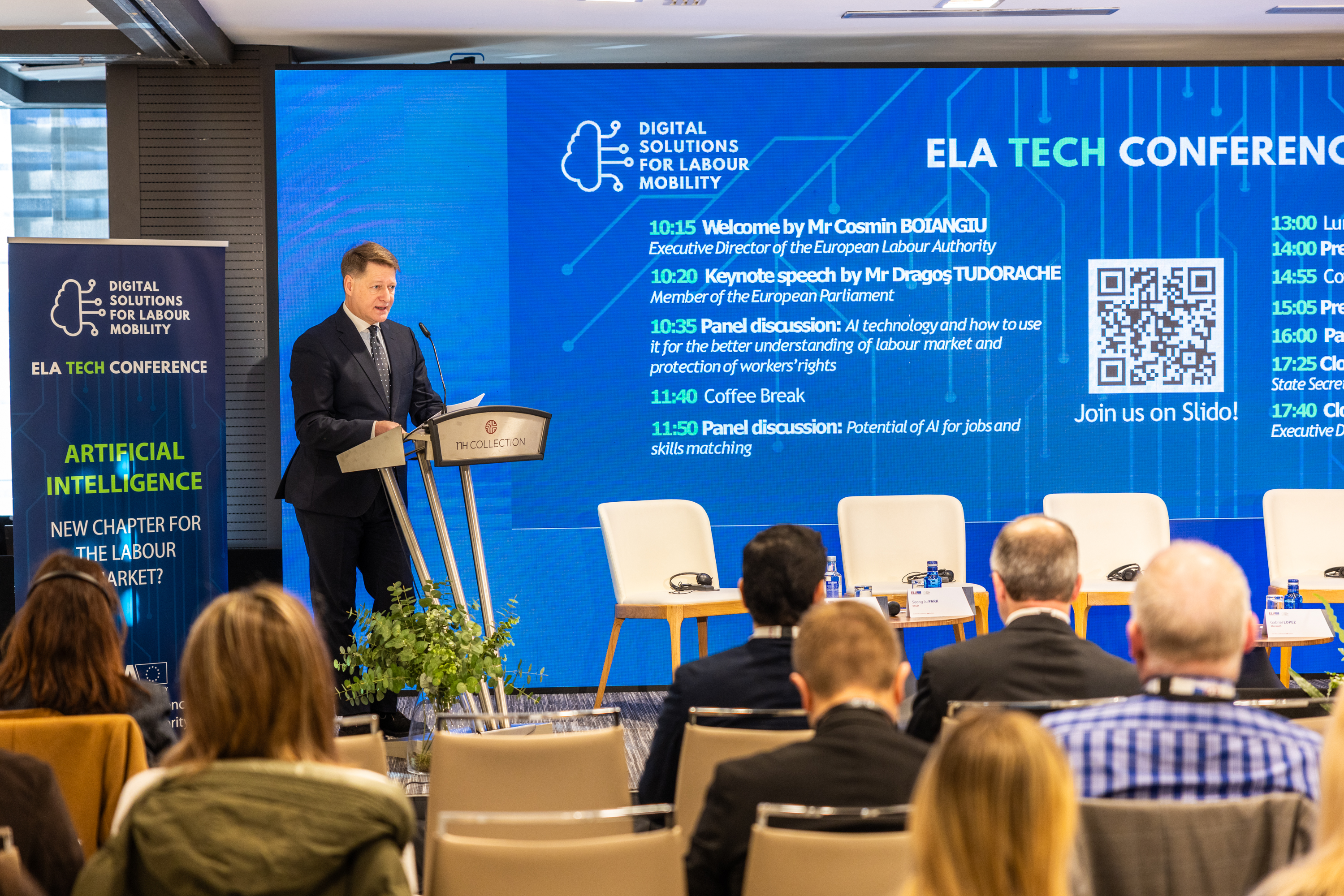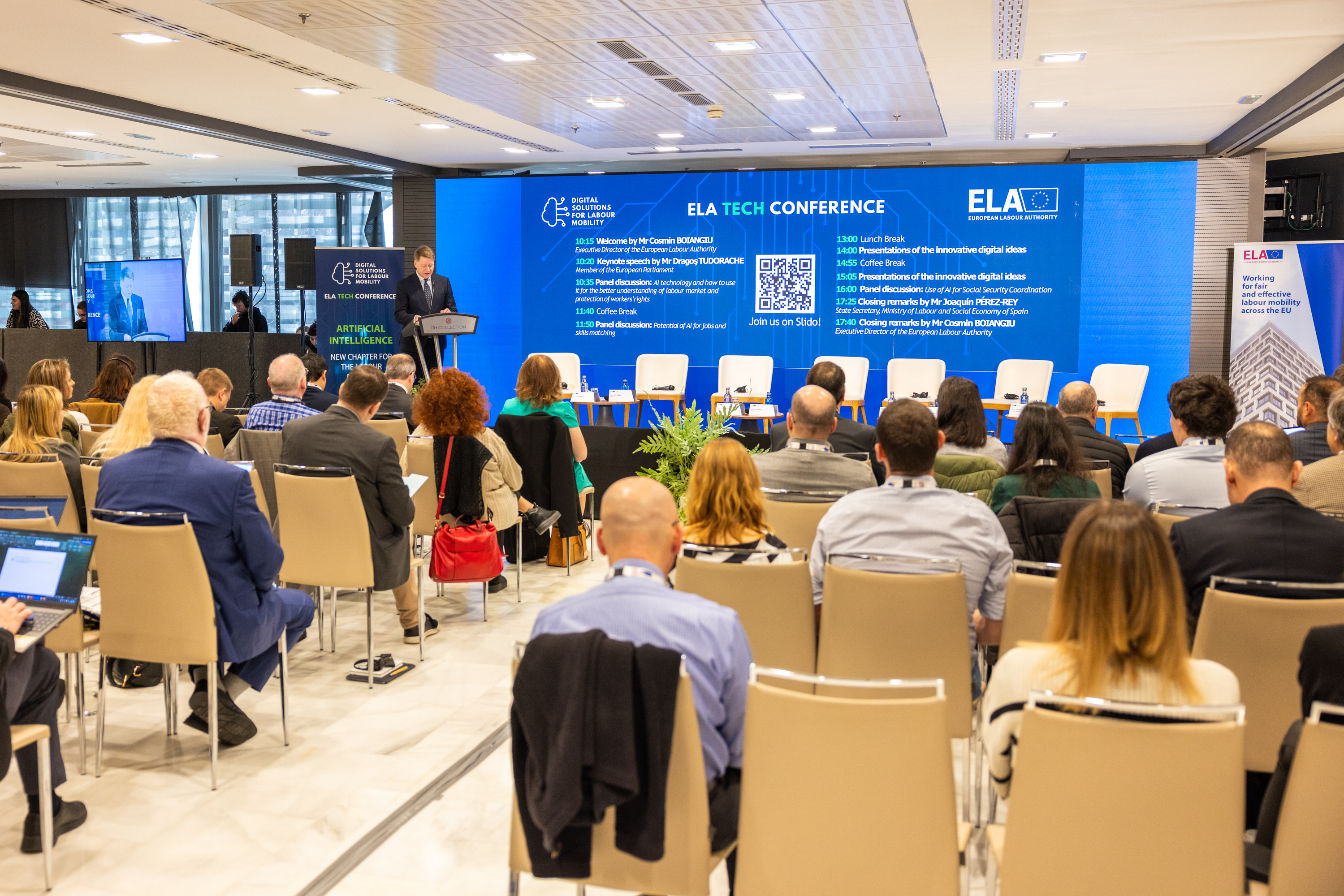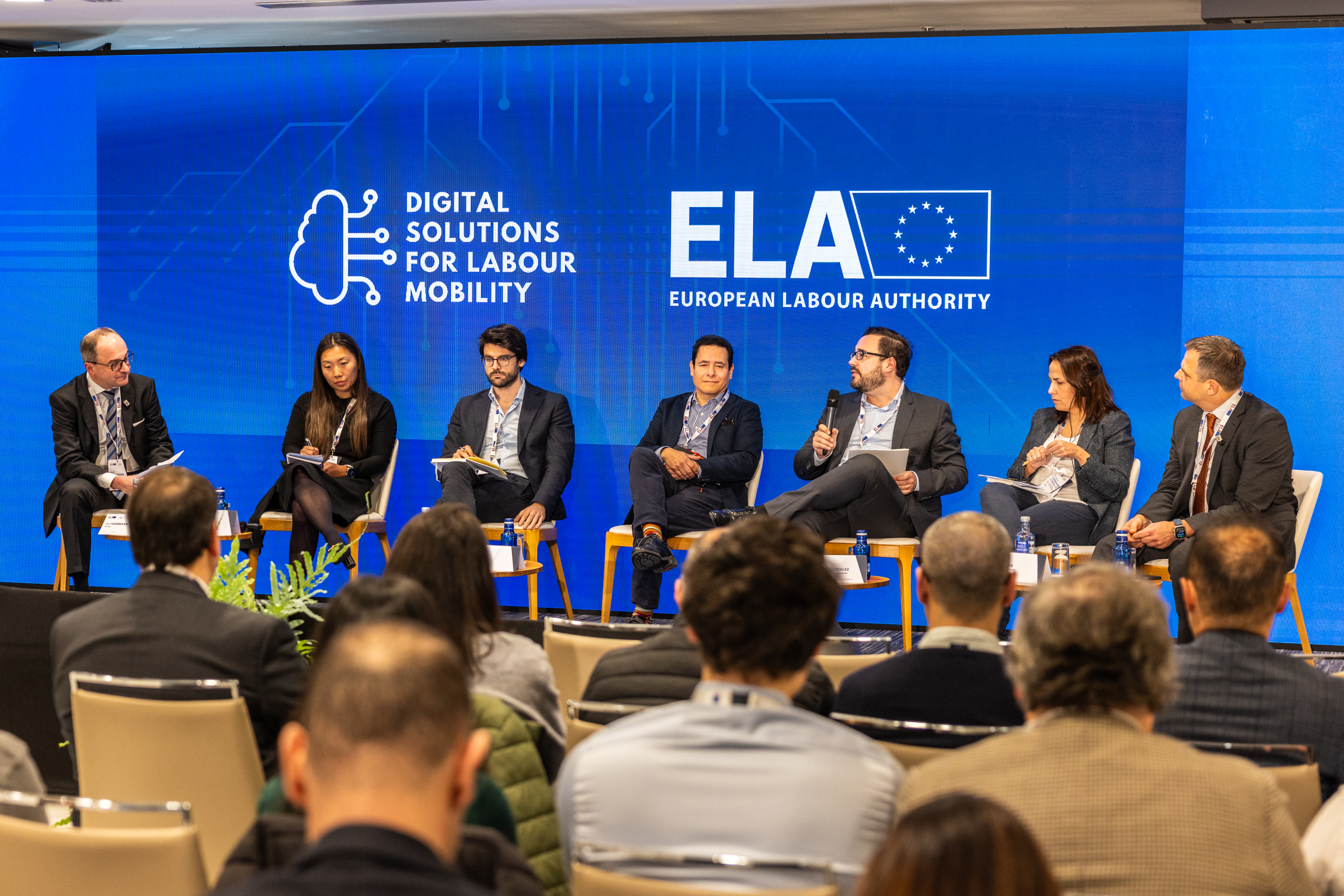Summary
The Conference was opened by Mr Cosmin Boiangiu, Executive Director, European Labour Authority (ELA) and was followed panel discussion on AI technology and how to use it for the better understanding of labour market and protection of workers’ rights.
During the first panel discussion, speakers from OECD, representatives of industry (Google, Microsoft), ELA and Spanish Labour and Social Security Inspectorate, discussed. They also explored trends where AI could have a considerable impact in the next 5 years, the biggest opportunities for the labour market, and the challenges, hurdles, and risks of applying AI. Finally, they discussed what needs to be done to promote AI’s potential for the labour market.
The second panel discussion of the day explored AI’s potential for jobs and skills matching. Experts from, academia, public administration, social partners and EU institutions discussed current labour mobility challenges, skill shortages, and how AI can match jobs with the right people. Panellists also outlined projects and strategies for improving jobs and skills matching using technology. Social partners pointed out the key challenges following from the EU labour market situation and potential of AI to mitigate some of them.
The afternoon part of the conference was devoted to the presentations of the Innovative digital solutions supporting application and enforcement of labour mobility rules using artificial intelligence and machine learning. The presented solutions were selected from the innovative digital ideas received in response to ELA call for papers published in 2023.
#1 Paper–- HR and Artificial Intelligence. The Case of Natural Language Processing–-
Ms Chrysanthi GEORGANTA, Career Counsellor, Public Employment Service, Greece
#2 Paper–- Efficient EU Workforce Relocation through LLM-Driven Legislative Data Solutions–-
Mr Alberto ARLETTI, Business Partner, and Mr Alessandro ARLETTI, CEO, Arletti & Partners, Italy
#3 Paper–- Frago-GPT Generative Artificial Intelligence–-
Mr Wim COCQUYT, Director, and Mr Marc GEER, Senior Director, FRAGOMEN GLOBAL LLP, Belgium, and Ms Jo ANTOONS, FRAGOMEN Partner
#4 Paper–- CompetentNL: A data driven system for exploring labor market information through Hybrid AI–-
Ms Leyla EL KHAMLICHI, Data Scientist, UWV Netherlands Employees Insurance Agency, and Mr Dominik BLATT, Researcher, Statistics Netherlands CBS, Netherlands
#5 Paper–- Hyperscan: Using AI to examine candidate profiles to enhance matching to specific positions–-
Mr Jānis KREILIS, CEO and Cofounder, and Mr Juris BAUMS, Founder, Hyperjob, Latvia
#6 Paper–- AI that predicts migrant construction workers’ skill levels before they arrive in the country of work–-
Ms Marion KALLAKAS, COO, and Mr Martin KALAMEES, CEO, Werk, Estonia
During the afternoon Mr Dragoş Tudorache, Member of the European Parliament and rapporteur on Artificial Intelligence (AI Act) joined the ELA TECH Conference. In his keynote speech, Mr Tudorache stressed that “artificial intelligence provides fascinating opportunities, but it also presents challenges for workers and the labour market. The AI Act balances between harnessing the power of this technology, while protecting fundamental rights, the rights of workers, and the values of the Union.”
The final part of the conference featured OECD presentation on responsible use of AI for social security and a panel discussion on the use of AI in Social Security Coordination. The panellists representing OECD, academia and public administration discussed the benefits and trends of AI in social security. They shared their perspectives on the opportunities for AI integration into the European system for electronic exchange of social security information (EESSI) ecosystem and other digital tools, and the challenges and risks involved in promoting wider adoption of the technology in social security field.
Mr Joaquín Pérez-Rey, Secretary of State at the Spanish Ministry of Labour and Social Economy, highlighted the importance of algorithms and AI in his inspiring closing speech, mentioning all the opportunities that this technology brings.
Conversely, he also mentioned the importance and need for regulation in this area, so that years of progress in labour mobility are not jeopardised by the unsupervised use of algorithms, AI and related technologies. In his opinion, the use of algorithms and Artificial Intelligence in the labour market must have transparency, human supervision and be at the service of citizens and workers. This is the way to ensure 21st century labour rights with 21st century technology.
ELA Executive Director Cosmin Boiangiu concluded the conference by saying that ELA will focus on three areas in the field of artificial intelligence: information provision, job and skills matching, and law enforcement. Mr Boiangiu highlighted that the goal of ELA TECH conference is to be a platform for information sharing and idea exchange in the field of technology and labour mobility, keeping the experts and enthusiasts across the Member States connected.















